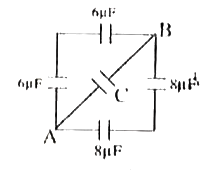Field capacity is
the same as permanent wilting point
the amount of water in soil after drainage takes place
higher for sandy soils than clay soils
the amount of water in soil available to plants
The correct Answer is:B
Step-by-Step Solution:
1. Understanding Field Capacity: Field capacity refers to the amount of soil moisture or water content that remains in the soil after excess water has drained away. This is the water that is held in the soil pores against the force of gravity.
2. Drainage Process: After a rainfall or irrigation, the soil initially holds more water than it can retain. Over time, excess water drains away, and the soil reaches a state where the gravitational water has moved out. The remaining water is what we refer to as field capacity.
3. Time Frame: Typically, field capacity is reached within 2 to 3 days after heavy rainfall or irrigation, as the soil stabilizes and excess water drains out.
4. Evaluating Options:
- Option A: "Field capacity is the same as permanent wilting point" - This is incorrect. The permanent wilting point is the stage where plants can no longer extract water from the soil.
- Option B: "The amount of water in soil after drainage takes place" - This is the correct definition of field capacity.
- Option C: "Higher for sandy soils than clay soils" - This is incorrect. Clay soils typically have a higher field capacity due to their smaller particle size and greater surface area.
- Option D: "The amount of water in soil available to plants" - This is also incorrect, as field capacity is not synonymous with the water available to plants, which can vary.
5. Conclusion: The correct answer to the question "Field capacity is" is "the amount of water in soil after drainage takes place."
---
- Option A: "Field capacity is the same as permanent wilting point" - This is incorrect. The permanent wilting point is the stage where plants can no longer extract water from the soil.
- Option B: "The amount of water in soil after drainage takes place" - This is the correct definition of field capacity.
- Option C: "Higher for sandy soils than clay soils" - This is incorrect. Clay soils typically have a higher field capacity due to their smaller particle size and greater surface area.
- Option D: "The amount of water in soil available to plants" - This is also incorrect, as field capacity is not synonymous with the water available to plants, which can vary.
Topper's Solved these Questions
- TRANSPORT IN PLANTS BOOK - ICSECHAPTER - TRANSPORT IN PLANTS EXERCISE - TEST YOUR PROGRESS (Fill in the blanks with appropriate words )
32 Videos
- TRANSPORT IN PLANTS BOOK - ICSECHAPTER - TRANSPORT IN PLANTS EXERCISE - TEST YOUR PROGRESS (State whether the following statements are true or false)
16 Videos
- TRANSPORT IN PLANTS BOOK - ICSECHAPTER - TRANSPORT IN PLANTS EXERCISE - REVIEW QUESTIONS (Questions based on diagrams or set-up)
30 Videos
- THE LIVING WORLD BOOK - ICSECHAPTER - THE LIVING WORLD EXERCISE - Ncert Exercises (Differentiate Between )
4 Videos
Similar Questions
At field capacity the soil contains
View SolutionSelect the statements regarding "Good soil"
a. The maximum amount of water soil can hold and it is called field capacity.
b. The loamy soil has high field capacity and it has more amount of hygroscopic water.
c. Gravitational water is runaway water.
d. capillary water is present inside the microspores of soil and is the water that is available to plant roots.
View Solution
Knowledge Check
The highest cranial capacity is/was present in
AJava manBPeking manCHandy manDModem manAn unrestricted reproductive capacity is called
ABirth rateBBiotic potentialCCarrying capacityDFertility
If the equivalent capacity between A and B in the circuit is 12μF, the capacity C is

View SolutionThe correct order of fossils from lowest cranial capacity to highest cranial capacity is
View SolutionTotal lung capacity is _____________ ml.
View SolutionTotal lung capacity is
View SolutionTotal lung capacity is :−
View SolutionFunctional residual capacity is -
View Solution
